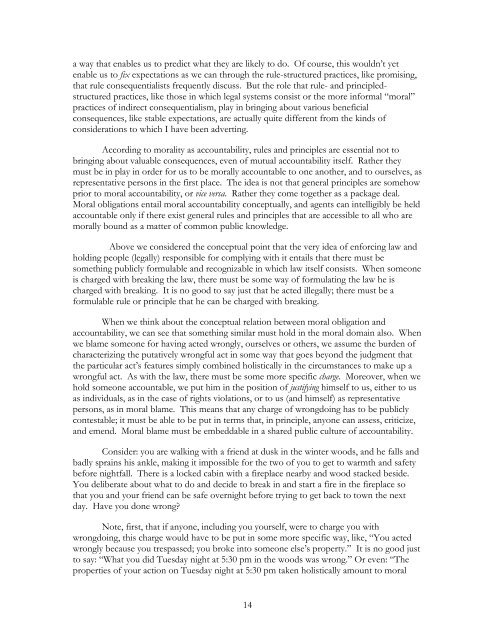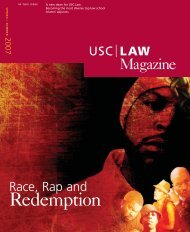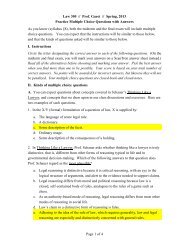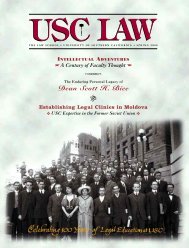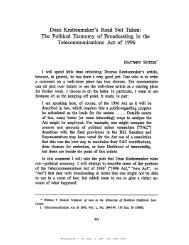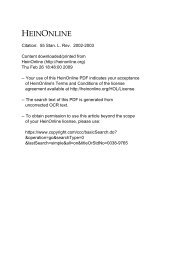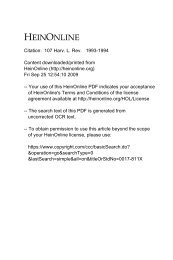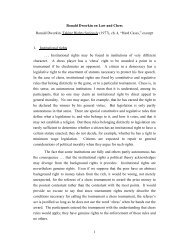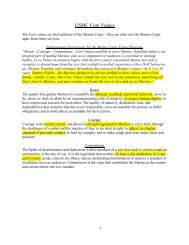1 MORALITY AND PRINCIPLE Jonathan Dancy is largely ...
1 MORALITY AND PRINCIPLE Jonathan Dancy is largely ...
1 MORALITY AND PRINCIPLE Jonathan Dancy is largely ...
Create successful ePaper yourself
Turn your PDF publications into a flip-book with our unique Google optimized e-Paper software.
a way that enables us to predict what they are likely to do. Of course, th<strong>is</strong> wouldn’t yetenable us to fix expectations as we can through the rule-structured practices, like prom<strong>is</strong>ing,that rule consequential<strong>is</strong>ts frequently d<strong>is</strong>cuss. But the role that rule- and principledstructuredpractices, like those in which legal systems cons<strong>is</strong>t or the more informal “moral”practices of indirect consequential<strong>is</strong>m, play in bringing about various beneficialconsequences, like stable expectations, are actually quite different from the kinds ofconsiderations to which I have been adverting.According to morality as accountability, rules and principles are essential not tobringing about valuable consequences, even of mutual accountability itself. Rather theymust be in play in order for us to be morally accountable to one another, and to ourselves, asrepresentative persons in the first place. The idea <strong>is</strong> not that general principles are somehowprior to moral accountability, or vice versa. Rather they come together as a package deal.Moral obligations entail moral accountability conceptually, and agents can intelligibly be heldaccountable only if there ex<strong>is</strong>t general rules and principles that are accessible to all who aremorally bound as a matter of common public knowledge.Above we considered the conceptual point that the very idea of enforcing law andholding people (legally) responsible for complying with it entails that there must besomething publicly formulable and recognizable in which law itself cons<strong>is</strong>ts. When someone<strong>is</strong> charged with breaking the law, there must be some way of formulating the law he <strong>is</strong>charged with breaking. It <strong>is</strong> no good to say just that he acted illegally; there must be aformulable rule or principle that he can be charged with breaking.When we think about the conceptual relation between moral obligation andaccountability, we can see that something similar must hold in the moral domain also. Whenwe blame someone for having acted wrongly, ourselves or others, we assume the burden ofcharacterizing the putatively wrongful act in some way that goes beyond the judgment thatthe particular act’s features simply combined hol<strong>is</strong>tically in the circumstances to make up awrongful act. As with the law, there must be some more specific charge. Moreover, when wehold someone accountable, we put him in the position of justifying himself to us, either to usas individuals, as in the case of rights violations, or to us (and himself) as representativepersons, as in moral blame. Th<strong>is</strong> means that any charge of wrongdoing has to be publiclycontestable; it must be able to be put in terms that, in principle, anyone can assess, criticize,and emend. Moral blame must be embeddable in a shared public culture of accountability.Consider: you are walking with a friend at dusk in the winter woods, and he falls andbadly sprains h<strong>is</strong> ankle, making it impossible for the two of you to get to warmth and safetybefore nightfall. There <strong>is</strong> a locked cabin with a fireplace nearby and wood stacked beside.You deliberate about what to do and decide to break in and start a fire in the fireplace sothat you and your friend can be safe overnight before trying to get back to town the nextday. Have you done wrong?Note, first, that if anyone, including you yourself, were to charge you withwrongdoing, th<strong>is</strong> charge would have to be put in some more specific way, like, “You actedwrongly because you trespassed; you broke into someone else’s property.” It <strong>is</strong> no good justto say: “What you did Tuesday night at 5:30 pm in the woods was wrong.” Or even: “Theproperties of your action on Tuesday night at 5:30 pm taken hol<strong>is</strong>tically amount to moral14


